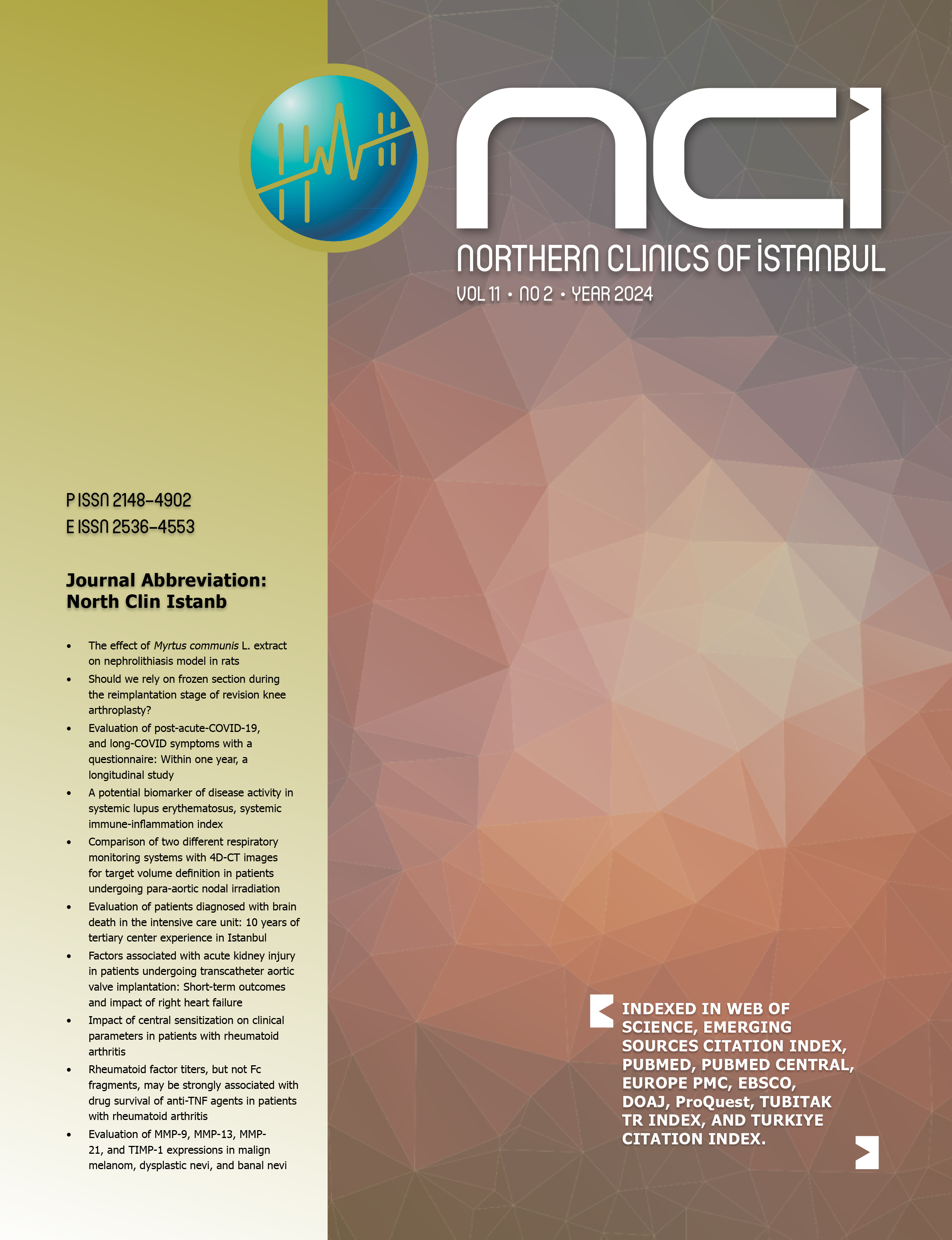Is the P-wave dispersion a valuable tool in determining the atrial arrhythmia of newborn babies with sepsis?
Fatma Hilal Yilmaz1, Derya Arslan2, Cengizhan Ceylan31Department of Neonatology, Ministry of Health Konya Dr. Ali Kemal Belviranlı Obstetrics and Gynecology Hospital, Konya, Turkiye2Department of Pediatric Cardiology, University of Health Sciences, Konya City Hospital, Konya, Turkiye
3Department of Clinical Pharmacy, Selcuk University Faculty of Pharmacy, Konya, Turkiye
Objective: This study aimed to ensure that newborns receive early diagnosis through P-wave dispersion in terms of possible atrial arrhythmias on the provocative basis of sepsis.
Method: In this prospectif study twenty term sepsis and twenty preterm sepsis patients were compared with control groups with their own characteristics in terms of P-wave dispersion by electrocardiography.
Results: The P-wave dispersion value in patients with term sepsis was determined to be statistically significant (p=0.03). There was no difference in APW between the patient and control groups in preterms (p<0.05). Heart rate in preterm patients with sepsis was found to be statistically significantly higher than in the control group (p=0.001).
Conclusion: Our study revealed a tendency for atrial arrhythmias in term newborn infants with sepsis. These babies should be followed by pediatric cardiology with cardiac monitoring throughout their treatment.
Keywords: Atrial arrhythmias; newborn; P-wave dispersion; sepsis.
P dalgası dispersiyonu sepsisli yenidoğan bebeklerde atriyal aritmiyi belirlemede değerli bir araç mıdır?
Fatma Hilal Yilmaz1, Derya Arslan2, Cengizhan Ceylan31Dr. Ali Kemal Belviranlı Kadın Hastalıkları ve Doğum Hastanesi, Neonatoloji Kliniği, Konya2Sağlık Bilimleri Üniversitesi, Konya Şehir Hastanesi, Pediatrik Kardiyoloji Kliniği, Konya
3Selçuk Üniversitesi Eczacılık Fakültesi, Klinik Eczacılık Anabilim Dalı, Konya
Amaç: Bu çalışmada yenidoğanların sepsisin provokatif temelinde olası atriyal aritmiler açısından P dalga dispersiyonu ile erken tanı almasını sağlamak amaçlandı.
Yöntem: Bu prospektif çalışmada 20 term sepsis ve 20 preterm sepsis hastası elektrokardiyografi ile P dalga dispersiyonu açısından kontrol grubuyla kendi özellikleri açısından karşılaştırıldı.
Bulgular: Term sepsisli hastalarda P dalga dispersiyon değerinin istatistiksel olarak anlamlı olduğu belirlendi (p=0,03). Prematürelerde hasta ve kontrol grubu arasında APW açısından fark yoktu (p<0,05). Prematüre sepsis hastalarında kalp atım hızı kontrol grubuna göre istatistiksel olarak anlamlı derecede yüksek bulundu (p=0.001).
Sonuç: Çalışmamız sepsisli term yenidoğan bebeklerde atriyal aritmilere eğilim olduğunu ortaya koydu. Bu bebeklerin tedavileri boyunca kardiyak monitörizasyonla birlikte pediatrik kardiyoloji tarafından takip edilmesi gerekmektedir. (NCI-2024-3-17)
Anahtar Kelimeler: Atriyal aritmiler; yenidoğan; P dalgası dispersiyonu; sepsis.
Manuscript Language: English





















